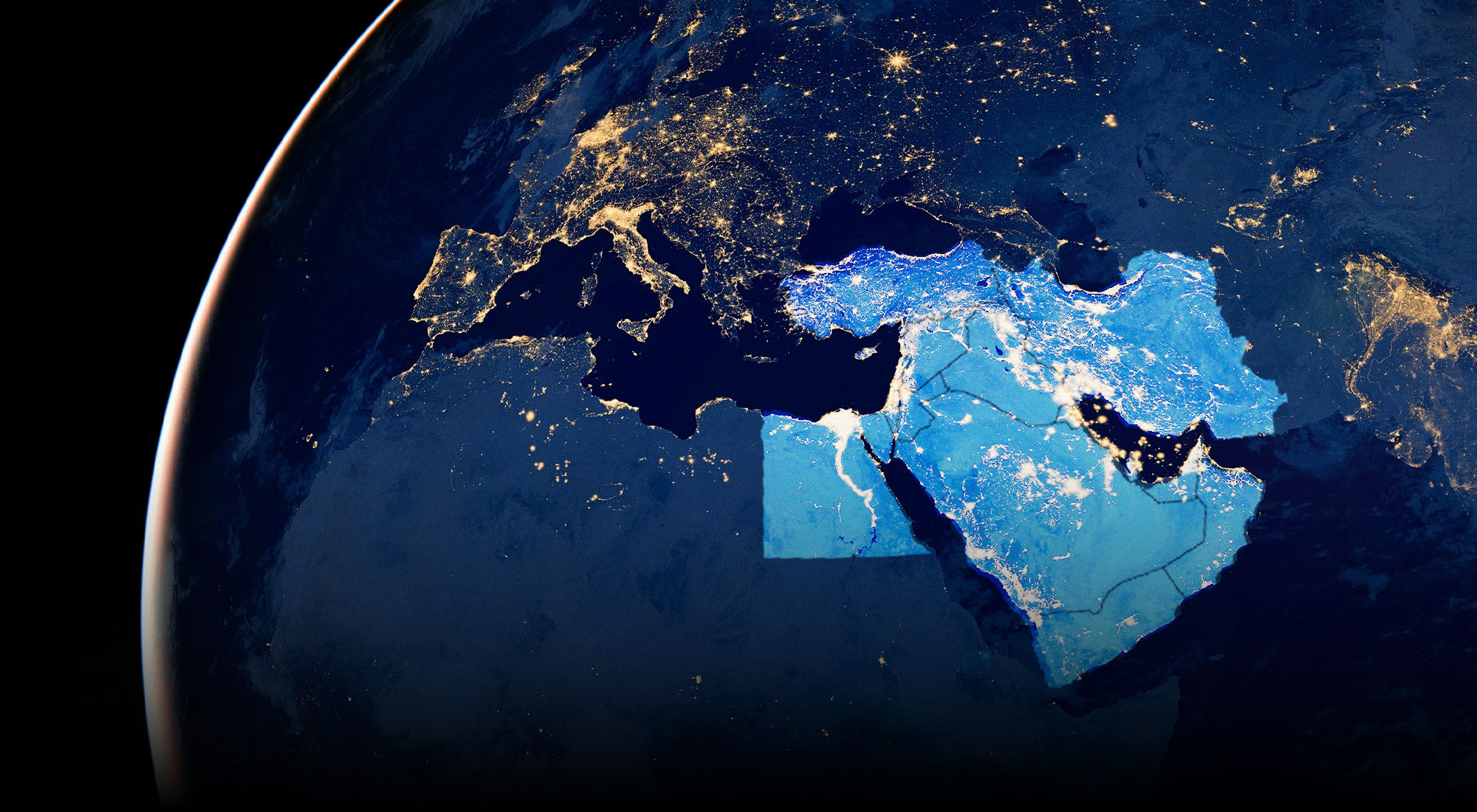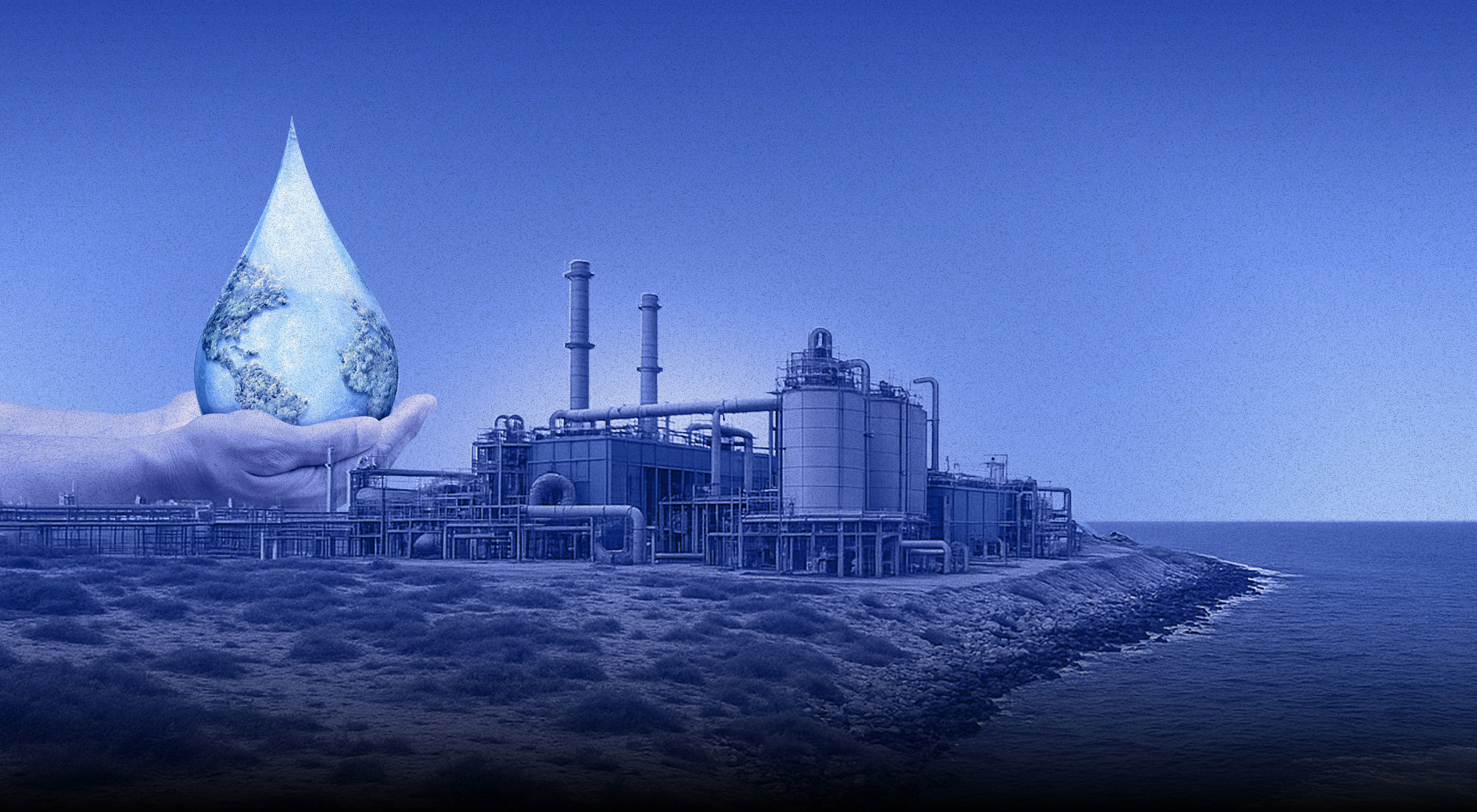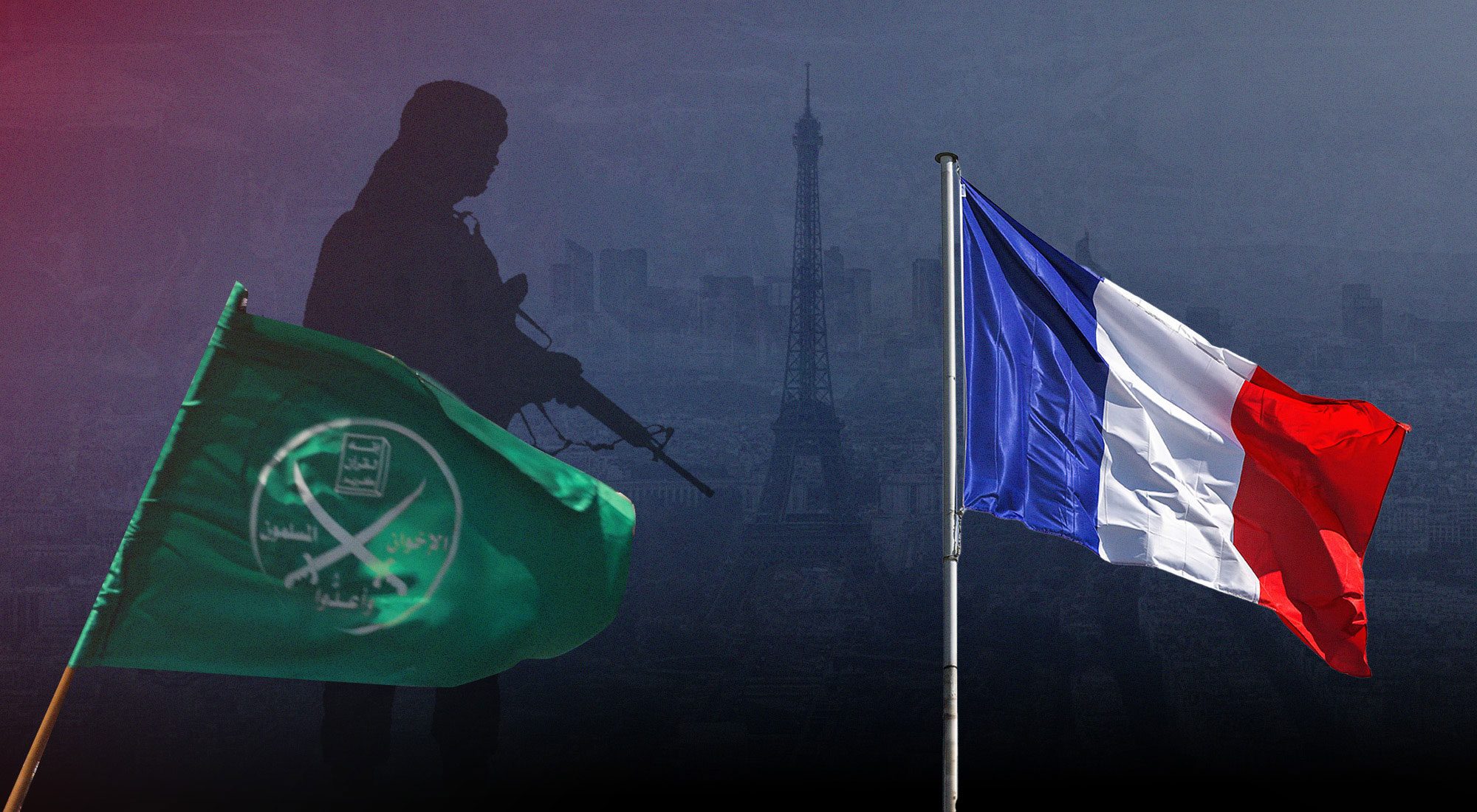In the heart of the Middle East lies a region that has been shaped by centuries of conflict, diplomacy, and cultural exchange.[1] The Syrian-Turkish border region is one of the most complex and dynamic areas in the world, and a key player in the geopolitics of the region.[2] The recent earthquakes have impacted the lives of millions of people, with entire cities destroyed, in what seemed an apocalyptic scene. But these earthquakes also appear to have reshuffled the balance of power in the Middle East, which will likely lead to a drastic change of dynamics in the not-too-distant future.
The main question that this paper addresses is how these earthquakes have affected security and geopolitics in the Middle East, based on the regional security complex theory (RSCT) developed by the Copenhagen School of International Security Studies. This theory emphasizes that geopolitical dynamics at the regional level should be seen as interdependent and functioning like regional clusters driven mainly by geographic proximity. Security is viewed as a socially constructed concept shaped by perceptions, interests, and interactions of actors in each region.[3] This is closely related to constructivism, which emphasizes the importance of social constructions and ideational factors in shaping behavior and interactions of states and other actors in the international system.[4] The interactions among states in the regional security complex create an interdependence of security that occurs within a geographically coherent grouping. This paper will also make reference to a modified version of the regional security complex theory called the “securitization model”, which can help understand the complex web of linkages between affected countries and how events affect those linkages. Overall, this paper will emphasize the importance of understanding how abstract concepts affect security and how geographic proximity affects regional interactions.[5]
In order to tackle the research question using this approach, the paper has been structured into four parts. The first part analyzes the intermediate position of Turkey between Europe and the Middle East, and how this has determined its international posture. The second part describes Turkey’s position as an insulator state, exploring its links to the Middle East. The third part discusses how the lack of common regional institutions has affected the security and stability of the region. The fourth part analyzes the relationship between Turkey and Syria, and how this has led to a shift in foreign relations.
The paper concludes that the lack of common regional institutions to coordinate rescue operations and mediate between different countries and institutions plays a major role in the region’s instability and lack of preparedness for crises, and that these earthquakes have revealed how the Middle East is one of the most anarchic regional complexes in the world.
The devastation of the earthquakes
On February 6, 2023, a magnitude 7.8 earthquake at 4:17 a.m., followed by another magnitude 7.6 at 1:26 p.m. – and as some experts suggest even by a third one – shook the ground beneath the feet of millions of Turks and Syrians. In less than 80 seconds, thousands of people lost their lives as buildings collapsed and entire towns were leveled to the ground, causing billions of dollars in infrastructure damage.[6] As President Recep Tayyip Erdoğan said, it was “the disaster of the century.”[7]
The human tragedy that aired shocked the world. Scenes of children who were orphaned, of elderly people who had lost all their life’s work, and of desperate people struggling between life and death under the rubble of entire cities gave a glimpse into the destruction and humanitarian disaster the earthquakes had caused. Hundreds of thousands of people had lost their homes and were forced to sleep in buses or tents,[8] a tragedy that was compounded by the lack of vital services such as water and electricity.[9]
The Turkish government attempted to mobilize its disaster response using the Incirlik base in Adana as the main logistics line to manage aid to all the affected areas, including the provinces of Gaziantep, Hatay, Osmaniye, Adıyaman, Malatya, Şanlıurfa, Adana, Diyarbakır and Kilis.[10] However, many roads had become unusable and posed logistical difficulties for rescue workers, prompting criticism of the government’s slow response.[11] On the other side of the border, the situation was even worse, as many of the affected areas were in disputed territory, and the lack of organized civil defense slowed down, or made almost impossible, any rescue operation.[12] In addition, the conflict frontlines made it extremely difficult for international aid to reach these areas.[13]
Over 50,000 (44,218 in Turkey, 5,914 in Syria) were reported to have lost their lives in the quake-hit areas of the two neighboring countries.[14] The earthquakes led to the displacement of 2.7 million people in Turkey alone,[15] causing serious economic, security, and demographic consequences,[16] with damages estimated to be over $100 billion.[17] The impact of this disaster on regional security is expected to mark a turning point in the current balance of power in the region, possibly laying the groundwork for a new geopolitical situation.[18]
Figure 1: Locations of the two major earthquakes (Source: Financial Times[19])
Between Europe and the Middle East: The Turkish dilemma
The region that corresponds to Turkey today was for centuries the crossroads between Western and Eastern civilizations: first between the Roman Empire and Sasanid Empire and later between the Byzantine Empire and Rashidun Caliphate. After the fall of the Ottoman Empire in 1923, ending more than six centuries of rule, and the establishment of the Turkish Republic, Mustafa Kemal Atatürk became the country’s new president, enabling him to realize his vision for a new Turkey.[20] He initiated a process of industrialization, modernization, and secularization that slowly brought Turkey back closer to Europe and the West – a development that culminated in Turkey’s application for formal membership in the European Economic Community in 1987. During this period, the Islamist movement gained momentum due to several factors, including the failure of the traditional political elite to address the country’s economic and political problems, the increasing polarization of Turkish society, and the rise of political Islamism worldwide.
In the 1990s, political Islamists in Turkey began to consolidate their power by forming political parties, such as the Welfare Party and the Virtue Party. These parties capitalized on the growing discontent with the secular establishment and promised to provide a more just and Islamic alternative.[21] However, their ascent to power was met with resistance from the secular establishment, which saw them as a threat to the country’s secular identity. Since the attempted coup d’état of 2016, many have criticized the Turkish government for using the coup as a pretext to crack down on dissent and restrict basic freedoms, which strained relations especially with some Western countries.[22] For example, Turkey accused the United States of involvement in the coup attempt and demanded the extradition of Fethullah Gülen, a Turkish cleric living in the United States who was allegedly behind the plot. The U.S. government refused to extradite Gülen, and this became a major source of tension between the two countries.[23] Add to this the historical tensions with Greece, the controversy caused by the French Charlie Hebdo cartoons that mocked President Erdoğan,[24] and last but not least, the burning of the Holy Quran by a right-wing extremist outside the Turkish embassy in Sweden.[25]
These various tensions clearly signaled to Ankara that there were fundamental cultural and political differences with its Western allies. The attempted coup is indicative of the dilemma between the more liberal part of society that gravitates towards Europe and the West, and a more conservative one that wants to retain the Islamic identity of Turkey, which according to the regional security complex theory is due to Turkey being an insulator state.[26] In a regional security complex, this refers to a particular kind of state that serves as a buffer or insulation against security risks. An insulator state protects itself and surrounding states from external security concerns by maintaining a comparatively stable and safe environment within the area. It has some degree of resistance to disputes and tensions that could develop amongst other states in the complex.
This particular position as a crucial player in the region could, on the one hand, bring Turkey closer to Israel, especially through the need for humanitarian aid, which in turn could help Israel further consolidate its position in the Golan region and establish itself as a diplomatic partner. As shown during the earthquake disaster, many Israeli aid organizations responded to the emergency, and even partnered up with both Turkish and Arab NGOs. Prime Minister Benjamin Netanyahu’s public announcement that part of Israel’s humanitarian aid would be delivered inside Syria also marked a new development in how Israel is approaching its neighbors – an approach characterized by the use of soft power and both governmental and nongovernmental organizations to improve relations with other countries in the area by leveraging on emergencies or common goals.[27]
On the other hand, Iran may see this earthquake disaster as an opportunity to further expand its influence in Syria, particularly to maintain its access to key transit points for oil and gas exports and strengthen its position in the region. The fact that most of the earthquake-affected areas in Syria are under the control of rebel groups, such as the Free Syrian Army, could essentially allow the Assad government to use the situation to its advantage, and to retake the rebel-controlled areas of the country.[28]
Overall, the earthquakes have altered the dynamics between Turkey and Syria in the region. Turkey’s potential focus on disaster relief, and therefore distraction from foreign policy, could impact the country’s influence in Syria. Moreover, the Gulf states have proven that they can exert significant soft power both at the regional level, by providing substantial aid to the affected areas, and at the global level, especially among a younger audience. Expo 2020 in Dubai and the recent World Cup in Qatar are both evidence of this ever-growing influence.[29] That the GCC countries are on the global stage is a sign of their ability to influence global dynamics and exert significant influence in the Middle East.[30] Generally, Turkey is more attached to the Middle East, and the earthquakes have redefined its role from an insulator state to a member of the regional security complex of the Middle East.[31]
Turkey’s role as an insulator state: A player in multiple dynamics
From the perspective of the regional security complex theory, we can understand how this intermediate position of Turkey has long defined its role as an insulator state. During the 2015 migration crisis, European institutions viewed Turkey as a container for the flow of refugees into Europe. A clear example of this attitude is the Declaration of Cooperation between the EU states and Turkish government signed in March 2016. Under this agreement, Turkey would take all necessary measures to stop the irregular onward movement of people from Turkey to the Greek islands, as well as other measures to contain pressure on the already overburdened Common European Asylum System (CEAS). In return, Turkey would receive 6 billion euros to improve the humanitarian situation of refugees in the country and Turkish nationals would be able to enter Europe visa-free.[32] This approach was also repeated in the fight against terror in Syria, where Turkey was once again seen as an important partner in preventing or containing any security risk that could threaten the southeastern border of NATO.
It is worth noting that Turkey’s geographic location has played an important role in defining its position between the regional security complex in Europe and the Middle East. The fact that the country is dominated by mountains has made it difficult for outside powers to invade and conquer the country throughout history, allowing Turkey to maintain its independence and sovereignty despite being located in such an important region. Its strategic location between Europe and the Middle East has also made Turkey a hub for regional and international trade and transportation, giving it economic and political influence. In addition, Turkey borders several countries, including Greece, Bulgaria, Georgia, Armenia, Azerbaijan, Iran, Iraq, and Syria, which makes it a key player in regional politics and security, as it is able to interact with multiple players simultaneously and shape the dynamics to its advantage. Finally, Turkey is surrounded by four seas, making it an important actor in maritime trade and security, particularly in the Mediterranean.[33]
The recent earthquakes have further highlighted Turkey’s importance in the region. As a hub for regional and international trade and transportation, Turkey’s response to the disaster has been vital to relief efforts both domestically and internationally. Its connections to neighboring countries, as well as its increased involvement in regional security and politics, have allowed it to play a crucial role in disaster relief efforts. Overall, the earthquakes have underscored how Turkey’s strategic location has impacted its position in the world and its relationships with neighboring countries. The fate of the Middle East is inevitably intertwined with Turkey. The sense of connection and shared despair with the Syrian people, as well as the humanitarian aid from many Middle Eastern countries, especially from the Gulf Cooperation Council, are a clear indication that Turkey’s perceived position in the world has changed dramatically and that Turkish-Syrian interdependence has taken a positive turn. This recent disaster was the final element in a development that, along with many episodes and disagreements with the West, has transformed Turkey from an isolated state into an integral part of the regional security complex in the Middle East. [34]
The lack of common regional institutions and its effects on stability
As mentioned above, the capabilities of the rescue teams were drastically different between Turkey and Syria, and even between different Turkish regions. The national and regional limitations of the various rescue efforts had a negative impact on the local population and led to a strong sense of despair. The lack of regional institutions in the Middle East to regulate the behavior of states and coordinate transnational rescue operations is a major issue in the region, especially when compared to other regions such as Europe, which has strong regional institutions like the European Civil Protection Pool. In 2022, for example, when fires raged across most of southern Europe, the European Civil Protection Pool was activated, which brought in personnel and equipment from across the continent, thanks to organization and planning that went beyond national borders.[35] This not only helped improve the speed and effectiveness of the rescue operations, but also alleviated the distress of the affected population by directly improving their sense of security, while promoting stability and cooperation among member states. The lack of similar institutions in the Middle East is stark.
There are several other examples of such disasters in Europe in which transnational management of the crisis has improved emergency response effectiveness,[36] and therefore the sense of perceived security and stability. In the Middle East, on the other hand, due to the lack of a regional authority to coordinate rescue efforts, Turkey and Syria had to rely on their own resources and capabilities to provide an adequate response to the earthquakes and ensure their security. This creates a state of uncertainty and insecurity that leads to constant competition and conflict among regional actors, which directly impacts local populations and limits the effectiveness of government operations.
According to Buzan and Waever’s regional security complex theory, the Middle East regional security complex is identified as a standard type, meaning that there are multiple poles with no great powers or a clear regional order.[37] Although the direct intervention of the military or militias in the affected areas has increased the level of security in both countries, the slow response of governments in providing food and basic services to their citizens could affect the perception of security and government sovereignty.[38] Indeed, it is important to note that without adequate assistance, most of the local population would be forced to migrate in order to survive. This would lead to a security problem caused by a significant and dramatic demographic loss that would result in the depopulation of entire regions. This poses a serious risk as it could ease infiltration by rebels and hostile forces. On the other side of the border, the risk is even bigger as there are numerous actors that could fill these gaps, from the local branch of the PKK (Kurdistan Workers’ Party) to various extremist movements, particularly in Idlib.
In an interview with Dr. Serhat Süha Çubukçuoğlu, an expert on Turkish security at TRENDS Research and Advisory, it emerged that while the situation in Turkey with members of the self-proclaimed caliphate is relatively well under control and largely kept underground at the moment, the greatest threat to Turkey’s national security comes from depopulation, as it can affect the region much more profoundly than any insurgent group alone. According to Çubukçuoğlu, we must look at the events from the perspective of national rhetoric, where such severe depopulation has triggered the spread of various conspiracy theories linking Turkey’s situation to that of the Palestinian people. This has led to many negative attitudes towards the acquisition of land by foreigners, as well as certain behaviors such as not selling houses and land in the affected areas to foreigners, leaving practically thousands of houses empty – land and areas that in the long run could be occupied by local insurgent groups who would use them as bases for their operations deep inside Turkish territory.[39]
However, this would go beyond their mere presence, as all the workers who had been working in local factories and other industries, and were forced to move, would be discouraged from returning due to the lack of infrastructure and basic services, which, if not acted upon quickly, could mean a loss of productivity in the areas and consequently a decline in the market value of the properties. This would impact the economic and industrial fabric of the region and, along with damage to infrastructure, could slow or impede the movement of goods and people. In the long run, this could be the catalyst for further instability. Similarly, families choosing to stay or to return could face poor economic conditions, leading to dissatisfaction with the government. This could also increase the appeal of many insurgent groups, especially to impoverished young people, leading to an inevitable further increase in instability and becoming a thorn in Ankara’s side.
From this perspective, military presence and nationally coordinated emergency response are not enough to ensure stability in the region. Although the Turkish government has responded to the emergency to a certain extent, there have been three key failures: lack of flexibility in planning, lack of coordination, and initial suppression of social media. When it comes to disasters of a massive scale, there is only one organization in Turkey with the ability to respond effectively – the military. However, during the recent earthquakes, the military was initially not given a significant role in the response, resulting in their absence during the crucial early hours and days of the crisis when many lives could have been saved.[40]
The current presidential governance model in Turkey is highly centralized, which can be challenging for organizations on the ground to respond with the necessary flexibility. While centralized systems are praised for their capacity to streamline decision-making and emergency response, the earthquakes have exposed their limitations. Lack of coordination has been a significant issue in the aftermath of the Turkish earthquakes. Although seismic activity was anticipated, the government failed to prepare for coordination, leaving organizations on the ground unsure of who would take the lead. This lack of coordination resulted in delays that proved fatal to many. Despite boasting a powerful network of security institutions, including the military and police, there was reportedly little to no intervention by these agencies in the immediate aftermath of the quakes. Furthermore, the suppression of social media hindered emergency response efforts, which is problematic given the critical role that social media plays in coordinating relief and rescue efforts.[41]
The Turkish-Syrian relationship
The recent earthquakes in Turkey have not only highlighted the inadequacies in the government’s response, but have also pointed to the potential implications for the geopolitical landscape of the region. As Turkey necessarily focuses more on emergency relief and addressing organizational difficulties, it can be expected to focus less on foreign policy, which could allow other regional actors such as Syria to take advantage of this distraction. Syria is trying to regain its independence and influence by leveraging its perceived weakness and appealing to cooperation, with the aim of regaining international recognition and rebuilding its relations with foreign countries – as proved by Bashar Al-Assad’s recent phone meetings with Egyptian President Abdel Fattah El-Sisi and Bahrain’s King Hamad bin Isa Al Khalifa, the first in more than 10 years.[42] The earthquakes have therefore proved that the Middle East is the most anarchic regional complex, revealing the need for common institutions that can mediate between states and coordinate emergency response efforts.
Turkey and Syria share a 911-kilometer border that has allowed for brisk trade and cross-border traffic between the two countries. Prior to the Syrian conflict, Turkey was Syria’s largest trading partner, with over $2.5 billion in trade in 2010.[43] Although the situation has changed due to the conflict, the two countries are inevitably linked as a result of their geographical location. Indeed, despite the conflict, there is still significant cross-border movement of people and goods between Turkey and Syria. Turkey also hosts a large number of Syrian refugees, an estimated 3.6 million people (with unofficial estimates going as high as 4.5-5 million), who fled the conflict in their home country.[44]
In recent years, the migration crisis has strongly influenced public opinion in Turkey and has led to anti-Syrian sentiment against refugees. This has been caused by perceived threats to personal security and competition for jobs by a segment of the Turkish population. Clear examples of this are some incidents such as the one in which a 19-year-old Syrian refugee was brutally stabbed by a group of 8 people in a knife attack in Istanbul in January 2022.[45] This sentiment is further exacerbated by difficult economic conditions and rising inflation. The conflict in Syria has also affected the security situation in Turkey, as several terrorist attacks and bombings have been carried out by groups linked to the Syrian conflict – for example, the 2016 Istanbul airport attack in which three suicide bombers killed 45 people and injured over 200 others.[46] This has partly contributed to Turkey’s continued involvement in the conflict and thus its link to the fate of the country.
Conclusions
In summary, the earthquakes have had a significant impact on the interdependence variable in the regional security complex between Turkey and Syria, particularly in terms of economic, social, and political consequences. While the earthquakes had the potential to exacerbate existing tensions between the two countries, it also opened opportunities for increased cooperation and collaboration in the aftermath of the disaster. This is a testament to the interconnectedness between the various countries in the region and the need for joint efforts against common threats and emergencies such as the migration crisis, the Ukrainian grain crisis, the war on terror, and the recent earthquakes.
Determining the impact that the earthquakes will have on the region is an extremely difficult task due to the many variables involved. But at the same time, it is undeniable that it will greatly affect the existing geopolitical environment. Despite its history, the series of events that culminated in the earthquakes seem to have transformed Turkey into an integral part of the Middle East regional security complex. At the same time, it appears the country may also have shifted its focus from foreign policy – a distraction that Syria and other regional actors could use to further strengthen their positions. However, the repercussions of the earthquakes are not limited to the Middle East. Greece, for example, recently reinforced its border to keep out refugees from the Turkish-Syrian earthquake zone.[47] This is a reminder that the consequences of this event have reached beyond Turkey and Syria.
The impact of natural disasters on the regional security complex and the importance of joint efforts to support local populations have been discussed. It is likely that we will witness a dramatic change in the dynamics of the region in the coming months, all stemming from this one event, which will ultimately test Turkey’s ability to maintain its sovereignty.
[1] Christopher Phillips, The Battle for Syria: International Rivalry in the New Middle East (Yale University Press, 2016).
[2] Stanford J. Shaw and Ezel Kural Shaw, History of the Ottoman Empire and Modern Turkey (Cambridge University Press, 1977).
[3] Buzan Barry, Ole Wæver, and Jaap de Wilde, Security: A New Framework for Analysis (Lynne Rienner Publishers, 1997).
[4] Michael C. Williams, “Words, Images, Enemies: Securitization and International Politics,” International Studies Quarterly 47, no. 4 (2003): p. 511, https://www.jstor.org/stable/3693634.
[5] Buzan Barry, Ole Wæver, and Jaap de Wilde, Security: A New Framework for Analysis (Lynne Rienner Publishers, 1997).
[6] U.S. Geological Survey (USGS), “M 7.8 – Pazarcik Earthquake, Kahramanmaras Earthquake Sequence,” February 6, 2023, https://on.doi.gov/3M2cVja.
[7] Sarah El Deeb, Zeynep Bilginsoy, Bernat Armangué, and Andrew Wilk, “Rising Toll Makes Quake Deadliest in Turkey’s Modern History,” AP News, February 14, 2023, https://bit.ly/42tcHae.
[8] UNICEF, “One Month On, More Than 850,000 Children Remain Displaced by Deadly Earthquakes in Southern Türkiye and Syria,” March 6, 2023, http://bitly.ws/Ixrq.
[9] Mostafa Rachwani, “‘A Terror Unlike Any That I Can Describe’: Surviving the Horror of the Earthquake in Idlib,” The Guardian, February 8, 2023, https://bit.ly/3NGthzj.
[10] “Turkish Military Fully Mobilized for Earthquake Efforts: Akar,” Daily Sabah, February 7, 2023, https://bit.ly/42dHqbz.
[11] Solcyre Burga, “The Failures of Turkey’s Earthquake Response,” Time, February 15, 2023, https://bit.ly/3NOXImS.
[12] “Roads Closed to Vehicle Traffic due to Earthquake,” Railly News, February 6, 2023, https://bit.ly/3nCAJ3L.
[13] Margaret Besheer, “First UN Aid Convoy Reaches Quake-hit Northern Syria,” VOA News, February 9, 2023, https://bit.ly/3B2jDzt.
[14] “Aid Is Still Lacking in Turkey and Syria a Month after the Devastating Earthquake,” Euronews [Video], March 6, 2023, https://bit.ly/42ywmW7; “Death Toll Climbs above 50,000 after Turkey, Syria Earthquakes,” Aljazeera, February 25, 2023, https://bit.ly/3nHrYFx.
[15] Reliefweb, “Türkiye: 2023 Earthquakes Situation Report No. 8, As of 9 March 2023,” http://bitly.ws/Ixnd.
[16] Assiya Hamza, “View from Aleppo: ‘Syrians Are Angry with the West’ over Lack of Earthquake Aid,” France24, February 22, 2023, https://bit.ly/3pf11K3.
[17] “Turkey Earthquake Damage Estimated to Exceed $100 Billion: UN,” NDTV, March 7, 2023, http://bitly.ws/IxaM.
[18] Ismaeel Naar, “World Bank Estimates Turkey Earthquake Damage at $34 Billion,” The National, February 28, 2023, https://bit.ly/41if8LD.
[19] Alasdair Monteith, “Geography Class: Turkey and Syria’s Devastating Earthquakes in Graphics,” Financial Times, February 12, 2023, https://on.ft.com/3B0g3pl.
[20] Patrick Kinross, Atatürk: The Rebirth of a Nation (Phoenix, 2001); Barry Buzan and Thomas Diez, “The European Union and Turkey,” Survival 41, no.1 (1999), https://doi.org/10.1093/survival/41.1.41.
[21] Angel Rabasa and F. Stephen Larrabee, The Rise of Political Islam in Turkey (RAND Corporation, 2008): pp. 31-50, https://bit.ly/42yzgtZ.
[22] Nick Tattersall and Alexander Winning, “As Turkey’s Coup Strains Ties with West, Detente with Russia Gathers Pace,” Reuters, August 5, 2016, https://bit.ly/42aMeyv.
[23] Alan Yuhas, Jamie Grierson, Claire Phipps, et. al., “Turkey Coup Attempt: Erdoğan Demands US Arrest Exiled Cleric Gülen amid Crackdown on Army – As It Happened,” The Guardian, July 17, 2016, https://bit.ly/3B1nBIz.
[24] Bill Bostock, “Charlie Hebdo, Whose Cartoons Sparked Terror Attacks in France, Published a Cutting Caricature of Turkish President Erdogan amid His Feud with Macron,” Business Insider, October 28, 2020, https://bit.ly/3HKUrBc.
[25] “Hurtful and Despicable: Pak PM Condemns Burning of Quran in Sweden,” Khaleej Times, January 22, 2023, https://bit.ly/42wmXyp.
[26] Barry Buzan and Thomas Diez, “The European Union and Turkey,” Survival 41, no.1 (1999), https://doi.org/10.1093/survival/41.1.41.
[27] Nir Boms and Joelle Rosenthal, “Regional Crisis and Regional Cooperation: Israeli Response to the Earthquake in Syria and Turkey,” Washington Institute, March 6, 2023, https://bit.ly/3VEmE2h.
[28] Tom Perry and Alex Richardson, “Syrian Government Forces, Rebels Clash in Quake-hit Region-Report,” Reuters, February 17, 2023, https://reut.rs/3nzL2Wg.
[29] Akram Belkaïd, “Soft Power Influence in the Arabian Gulf,” Le Monde Diplomatique, September 2019, https://bit.ly/3HOhXgS.
[30] Salim A. Essaid, “Gulf Countries Rush Earthquake Aid to Turkey, Syria,” Al-Monitor, February 6, 2023, https://bit.ly/427NVg2.
[31] Barry Buzan and Thomas Diez, “The European Union and Turkey,” Survival 41, no.1 (1999), https://doi.org/10.1093/survival/41.1.41.
[32] Gloria Fernández Arribas, “The EU-Turkey Agreement: A Controversial Attempt at Patching Up a Major Problem,” European Papers 1, no. 3 (2016), https://doi.org/10.15166/2499-8249/80.
[33] Ronald Haly Linden et. al., Turkey and Its Neighbors: Foreign Relations in Transition (Lynne Rienner Publishers, 2012).
[34] Mina Aldroubi and Robert Tollas, “Which Regional Countries Are Sending Aid to Help Turkey-Syria Earthquake Victims?” The National, February 7, 2023, https://bit.ly/3M2bKjP.
[35] Alice Tidey, “Fighting Europe’s Fires: Inside the EU’s Emergency Response Centre,” Euronews, July 31, 2022, https://bit.ly/3NLPDzj.
[36] Ibid.
[37] Barry Buzan and Ole Wæver, Regions and Powers: The Structure of International Security (Cambridge University Press, 2003).
[38] Annalies Winny and Aliza Rosen, “Turkey-Syria Earthquakes: Firsthand Accounts and Public Health Perspectives,” John Hopkins Bloomberg School of Public Health, February 22, 2023, https://bit.ly/3B424iC.
[39] Dr. Serhat Süha Çubukçuoğlu, Interview with author, February 21, 2023.
[40] Ozgur Ozkan, “Why Was Turkey’s Military MIA After the Earthquake?” Foreign Policy, February 24, 2023, http://bitly.ws/IDRc.
[41] Guney Yildiz, “Three Things That Went Wrong in Turkey’s Earthquake Response,” Forbes, February 21, 2023, https://bit.ly/3VITLC7.
[42] Antonio Pita, “Turkey-Syria Earthquake Spurs an Arab Rapprochement with Bashar al-Assad,” El Pais, March 9, 2023, https://bit.ly/3LIDZ5O.
[43] ”Turkey Eyes New Trade Routes to Bypass Syria Violence,” Reuters, November 17, 2011, https://reut.rs/3pmpM6M.
[44] UNHCR Türkiye, “Refugees and Asylum Seekers in Turkey,” https://bit.ly/2RnABE1.
[45] Umar Farooq, “How Killing of Syrian Refugee Marks an Alarming Trend in Turkey,” Aljazeera, January 12, 2022, https://bit.ly/3nzMo3i.
[46] “Istanbul Airport Attack Toll Rises to 45 as Child Dies,” The Straits Times, July 2, 2016, https://bit.ly/42qWX7u.
[47] Helena Smith, “Greece Fortifies Border to Block Refugees from Turkish-Syrian Earthquakes,” The Guardian, February 26, 2023, https://bit.ly/44Cxaet.








